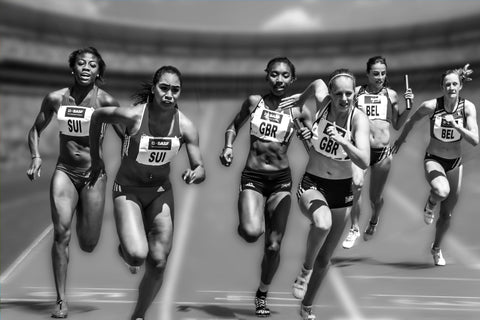
Sports Medicine Insights: Injury Prevention and Recovery in Athletics
If you are involved in athletics, you understand the excitement of competition and subjecting your body to challenges. However, these exhilarating experiences come with an increased risk of injuries. To maintain athletes in optimal form, timely treatment of injuries and effective prevention strategies are essential. This is where the field of sports medicine plays a pivotal role. Let's delve deeper into the key insights of sports medicine to explore how to avoid injuries and facilitate recovery.
How to Avoid Injuries
Prevention is always superior to cure, especially in the realm of sports. To prevent injuries and enhance overall athletic performance, various steps must be considered, including proper warm-up sessions, customized training programs, and adequate conditioning. Training tailored to your specific sport helps build strength and reduces the risk of injuries.
Participate in Warm-Up Sessions
Structured warm-up sessions, incorporating sport-specific drills, light cardio, and stretching under your coach’s guidance, prepare your body for the upcoming physical activity. This mechanism improves blood flow, promotes joint mobility, and enhances flexibility, ultimately decreasing the risk of injuries and improving athletic performance.
Customized Training Programs
Generic training is insufficient for every athlete; a customized training program based on individual physical requirements, strengths, and weaknesses is crucial. Collaborating with sports medicine experts allows for a close analysis of your situation and the design of personalized training programs.
Focus on Having a Well-Balanced Diet
Maintaining a well-nourished and hydrated body is crucial for athlete health. A balanced diet rich in essential nutrients supports injury prevention and recovery. Sports medicine emphasizes the importance of a nutrient-rich diet for muscle growth, repair, and overall health. Preventing dehydration is equally significant for optimal performance, injury minimization, and rapid recovery. Customized dietary plans, tailored to individual athletes, are crafted by collaboration between sports medicine professionals and nutritionists, considering body composition, health status, and anticipated physical demands.
Some Strategies for Recovery

In the athletic world, injuries are inevitable. Understanding recovery strategies that aid faster healing and prevent recurring issues is crucial for peak performance and sustained fitness. Recovery strategies in sports medicine include massage, physiotherapy, hot or cold therapy, proper rest, and quality sleep. Tailored recovery plans address both physical and mental aspects of healing based on specific conditions.
The Key Takeaway
While athletes relish pushing their bodies to the limits, the associated risk of injuries cannot be ignored. Sports medicine dimensions assist athletes in performing at their best, avoiding injuries, and implementing effective recovery strategies. The holistic approach of sports medicine underscores the importance of injury prevention over overcoming them later. Incorporating these sports medicine insights into practical athletic routines will contribute to achieving optimal athletic performance.
About the Author

Rukshana Kausar
Rukhsana is a seasoned nutritionist with a Master’s in Human Nutrition and Dietetics from UVAS, she brings seven years of clinical expertise from prestigious hospitals. Her broad experience includes successful online consultations and impactful work in nutritional counseling camps at universities, establishing her as a trusted authority in nutrition, fitness, and health



